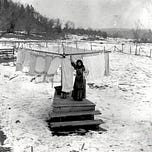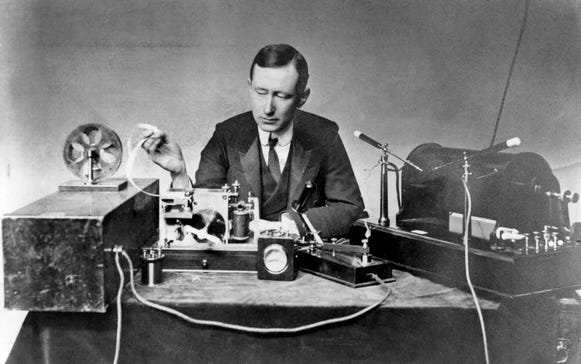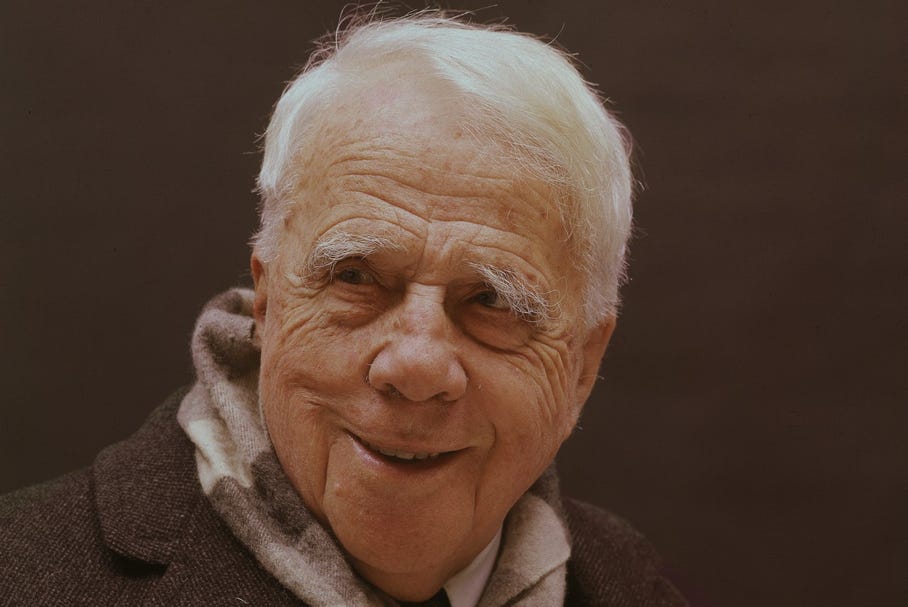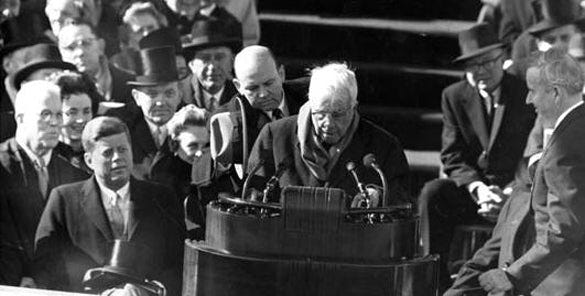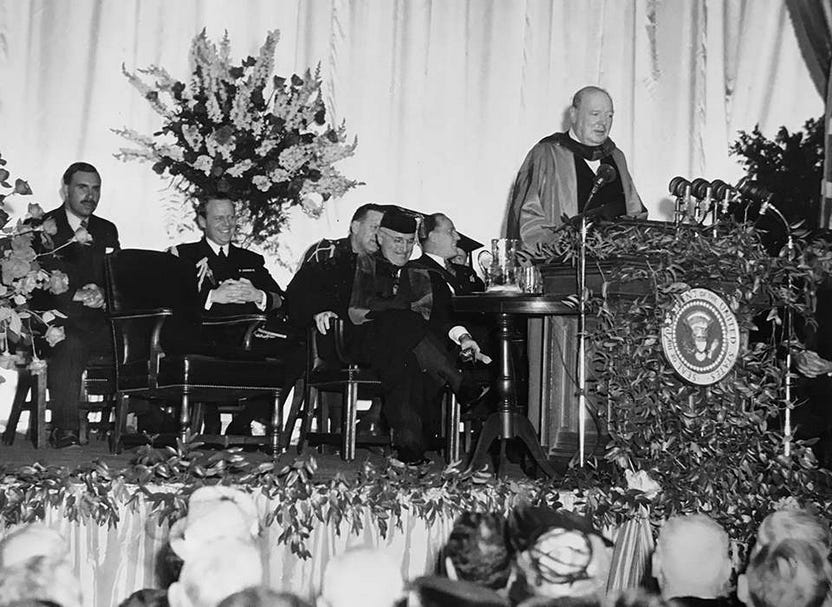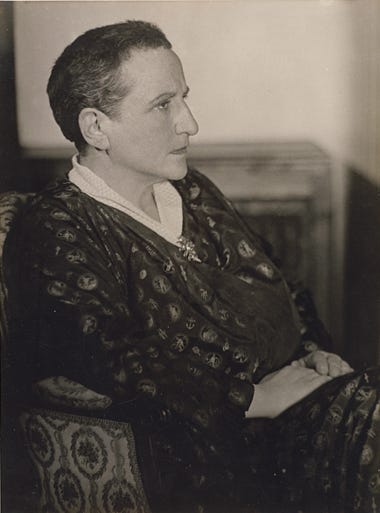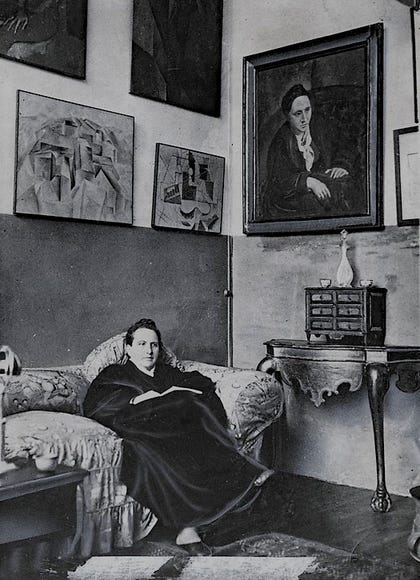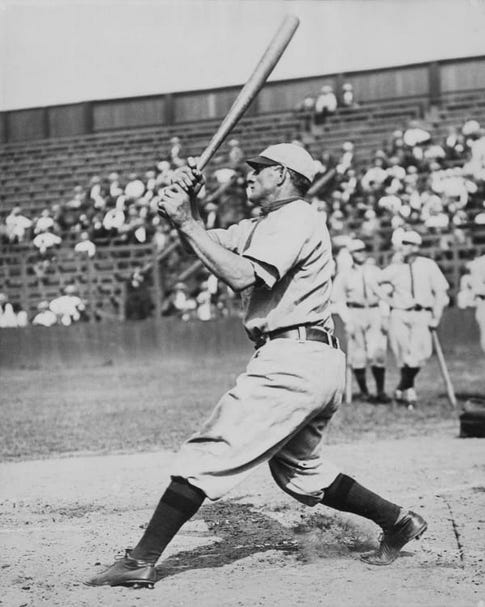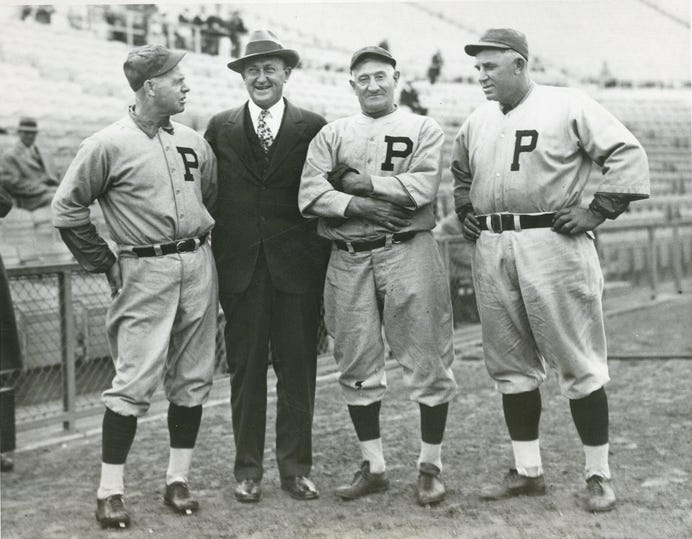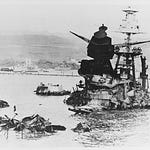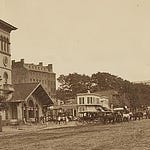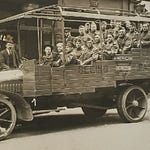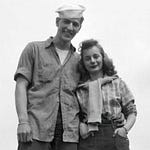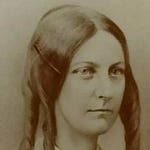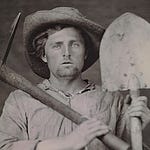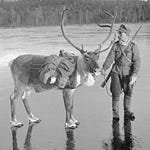1874
A year which would produce a stellar crop of babies.
And here are six of them, born 150 years ago.
Each left an indelible mark on the world.
Guglielmo Marconi, inventor.
Marconi sent radio waves over long distances, creating the first wireless communication system.
Initially, these wireless communications were in Morse Code.
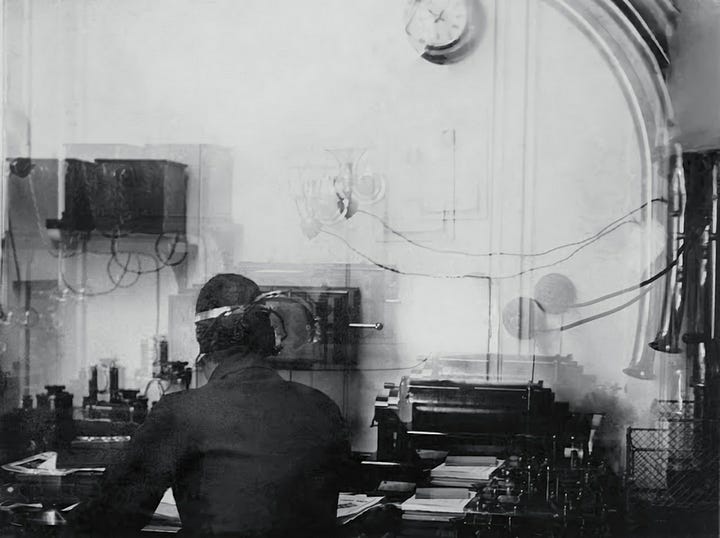
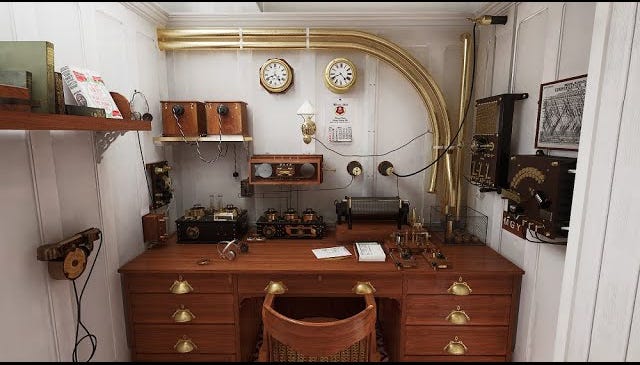
The value of radio telegraphed messages was proved to the public in 1912 when ship radio operators using Marconi’s system facilitated the rescue of 700 Titanic survivors.
He became a wealthy businessman.
And this technology now lays at the heart of modern television and radio transmission.
Robert Frost, poet.
Ordinary people. Ordinary experiences. Everyday language. Few rules.
These are the tools Robert Frost brought to poetry which brought him four Pulitzer Prizes.
Here’s one, entitled Birches:
I'd like to get away from earth awhile
And then come back to it and begin over.
May no fate willfully misunderstand me
And half grant what I wish and snatch me away
Not to return. Earth's the right place for love:
I don't know where it's likely to go better.
I'd like to go by climbing a birch tree,
And climb black branches up a snow-white trunk
Toward heaven, till the tree could bear no more,
But dipped its top and set me down again.
That would be good both going and coming back.
One could do worse than be a swinger of birches.
Winston Churchill, British statesman.
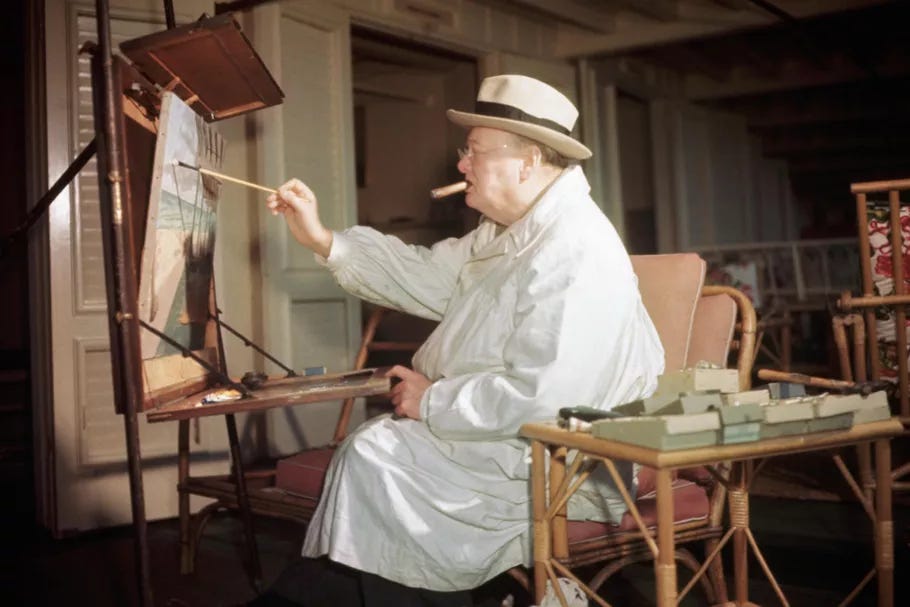
Soldier. Orator. Writer. Painter.
Twice elected British prime minister.
Both loved and disliked by millions.
Child of an American mother. Friend of Charlie Chaplin. An expert on the American Civil War.
In his “Iron Curtain” speech in 1946, describing the threat posed by the Soviet Union, Churchill enumerated the elements of democratic government to which both Britain and the US must constantly rededicate themselves.
‘[T]he people of any country have the right and should have the power by constitutional action, by free unfettered elections with secret ballot, to choose or change the character or form of government under which they dwell;
“that freedom of speech and thought should reign;
“that courts of justice, independent of the executive, unbiased by any party, should administer laws which have received the broad assent of large majorities...
“Here is the message of the British and American peoples to mankind.
“Let us preach what we practice, let us practice what we preach.
Gertrude Stein, writer.
Stein was eccentric and controversial, by design, in her life and her writings and was instrumental in launching the careers of some of the best artists and writers of the twentieth century.
She held salons on Saturday evening in her Paris apartment during the years between the world wars.
Artists and writers of the period, who would one day be called the “Lost Generation,” attended, drawing inspiration from her and from each another.
Many would gain international prominence through her patronage, including Henri Matisse, Pablo Picasso and Ernest Hemingway.
Much of her art collection now hangs in New York’s Museum of Modern Art.
Honus Wagner, baseball player.
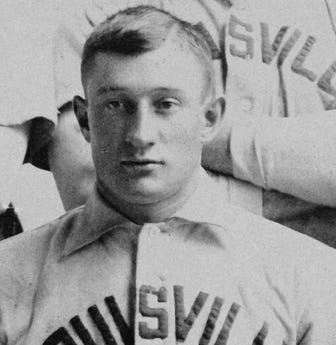
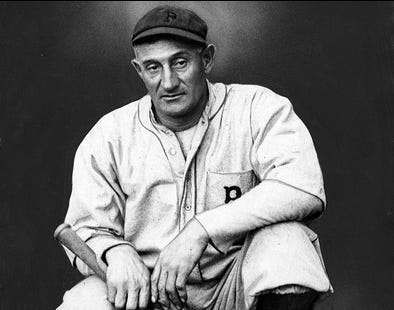
Wagner played professional ball for twenty-one seasons, mostly with his hometown Pittsburgh Pirates.
He is considered the finest shortstop in baseball history and one of the best all-around players of the game.
From a young ballplayer new to the Louisville club in 1898:
“I'm sitting on the bench the first day I reported, and along about the third inning an opposing batter smacks a line drive down the third-base line that looked like at least a sure double.
“Well, this big Louisville third baseman [Wagner] jumped over after it like he was on steel springs, slapped it down with his bare hand, scrambled after it at least ten feet, and fired a bullet over to first base.
“The runner was out by two or three steps.”
Legendary pitcher Christy Mathewson said Wagner was the only player he ever faced who did not have a weakness.
‘The only way to keep Wagner from hitting was not to pitch to him.’
Wagner was among the five charter members of the Baseball Hall of Fame, receiving six more votes than Babe Ruth.
But he was behind Ty Cobb, and the two had a legendary rivalry that baseball aficionados still talk about.
Ernest Shackleton, polar explorer.
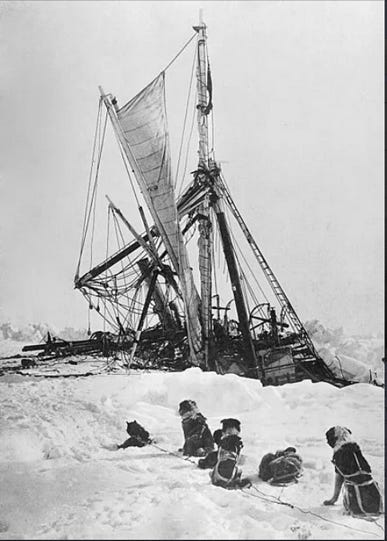
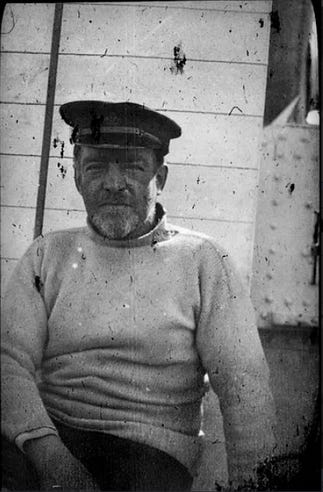
In 1914, Ernest Shackleton intended to lead a team of six men across Antarctica in what would be his third south polar expedition.
But his ship, the Endurance, became trapped in pack ice and sank, stranding Shackleton and his crew on the ice.
They rowed lifeboats to an uninhabited island.
And Shackleton and five others took the largest of the lifeboats across 800 miles of open ocean to seek help on South Georgia Island.
Three rescue attempts failed, but the fourth one succeeded, and Shackleton was able to save his entire crew.
And his dogged determination to save them made him a legend.
Shackleton left us with some words to live by:
“Need to put footstep of courage into stirrup of patience.”
******************************
I’ll see you tomorrow.
— Brenda


